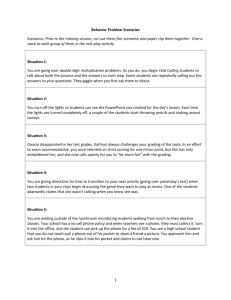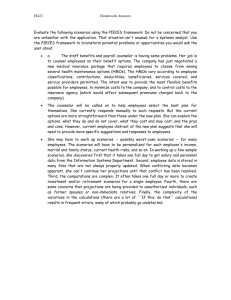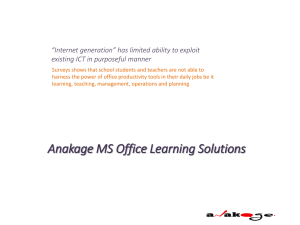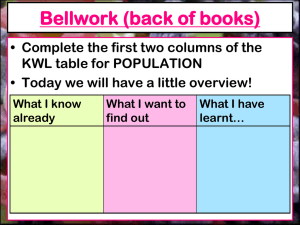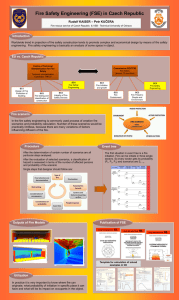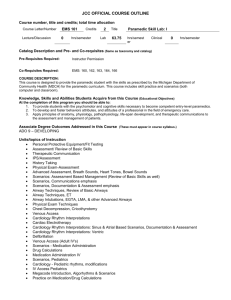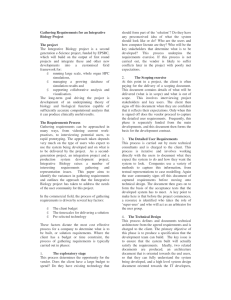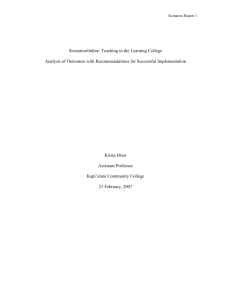Big Issues in Mobile Learning - How can we integrate mobile
advertisement
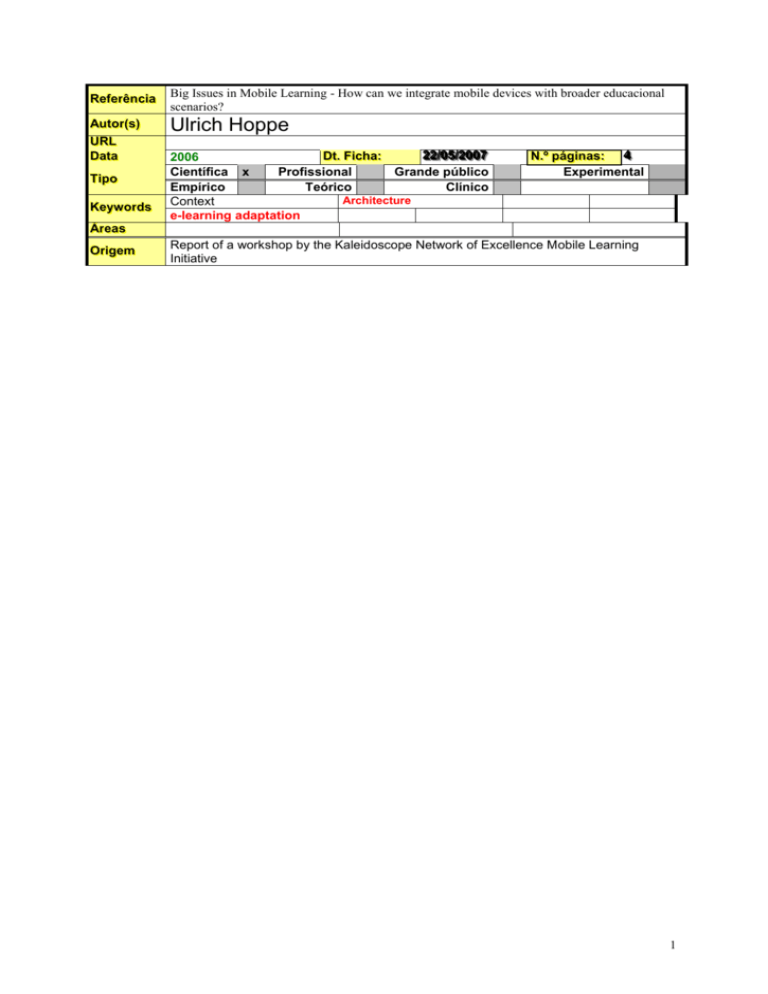
R Reeffeerrêênncciiaa Big Issues in Mobile Learning - How can we integrate mobile devices with broader educacional scenarios? A Auuttoorr((ss)) U UR RLL D a Dattaa Ulrich Hoppe TTiippoo K Keeyyw woorrddss D 2222//0055//22000077 2006 Dtt.. FFiicchhaa:: Científica x Profissional Grande público Empírico Teórico Clínico Architecture Context e-learning adaptation N N..ºº ppáággiinnaass:: 44 Experimental Á Árreeaass O Orriiggeem m Report of a workshop by the Kaleidoscope Network of Excellence Mobile Learning Initiative 1 To be sustainable and more than yet another volatile trend in technology enhanced learning (TEL), mobile learning needs to be contextualised in broader, integrative educational scenarios. In these scenarios, mobile devices need to inter-operate with embedded ubiquitous technologies and also with network and server infrastructures, and they need to support well grounded educational functions. it is important to define adequate distributions of functionality over these devices and to design and implement interoperability mechanisms. “Interoperability”, in this context, includes technical interoperability, i.e. data exchange and continuous information flow, but also “educational interoperability” in terms of the enabling of teaching/learning workflows and the support of reusability of emerging learning objects. On the pedagogical level, the idea of mobile learning is often associated with informal learning settings which could be triggered by situational affordances or could just take place whenever and wherever the learners want to. On the other hand, there are also suggestions for using mobile devices in institutionalised, formal learning, especially in classrooms. Exploring the issue The integration issue was first differentiated with respect to different types of integration, mainly from an in-classroom perspective. The following aspects were distinguished: Media integration, in terms of information flow and conservation of results across different media used in the learning setting; Process integration, i.e., the technical facilitation and support for learning processing involving participants in different roles; Knowledge integration, in the sense of a broader structuring, systematisation and “defragmentation” of knowledge. Knowledge integration was seen as a challenge for learning settings orchestrated by mobile devices, both for formal and for informal types of scenarios. R Reessuum moo Conclusions this session corroborated the claim that it is necessary to take an integrative perspective on orchestrating technology enhanced educational scenarios. From the elaboration of the second theme we can conclude that an adequate integrative design for mobile learning needs also a deep understanding of the affordances and inherent functional constraints of the technological components, and that this would not come as a consequence of the theoretical underpinning. So, an elaborate model of the educational situation and requirements, theory based structuring principles and technical expertise about the available and adequate technologies are all needed in a synergetic approach. 2 PPrroobblleem maa O Obbjjeettiivvooss M Mééttooddoo C Ciittaaççõõeess N Noottaass PPrrooccuurraarr ++ How can we integrate mobile devices with broader educacional scenarios? 3
